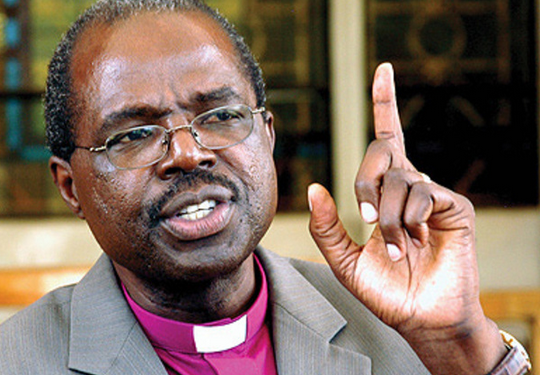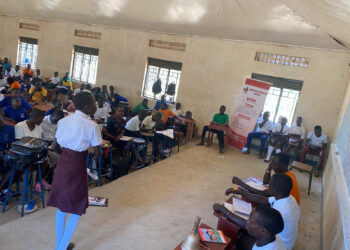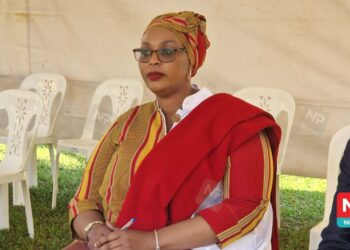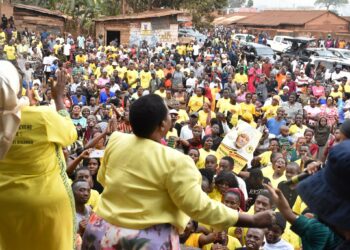Under this unforgiving sun, what more can man offer the Divine than the fragile bloom of gratitude? Across Uganda’s landscape of power (government agencies), thanksgiving prayers rise, thin and wavering, as if gratitude alone might cleanse stained hands. This year, the faithful and the fallen alike bent their knees, hoping holy words might heal what ambition fractured.
From the Uganda Communication Center to Parliament’s marble floors, clergy walked the halls, their robes trailing behind them like echoes of forgotten virtue. Last week, Parliament too, sought sanctuary beneath bowed heads and folded hands. But was it salvation they sought, or merely solace from the weight of public scorn?
No institution thirsted more for redemption than this House of lawmakers, whose gilded walls barely concealed the rot within. Corruption bloomed there like weeds in the absence of sunlight, and the wind of social reckoning blew fierce, exposing what lies beneath. Parliament stood revealed, not as the heart of democracy, but as a marketplace where integrity is bartered and sold.
Yet still, some leaders in Parliament pressed forward, enduring the heat not with virtue, but necessity. Not only that, even the shadow of foreign eyes darkened the chamber, for even the mighty falter beneath the gaze of America. Oil, gold, and rare treasures awaken beneath Ugandan soil, and with them, the interest of nations whose whispers weigh heavier than thunder.
Thus, Parliament’s Thanksgiving of 2024 was no mere ritual. It was a reckoning wrapped in the thin veil of prayer. Yet, if these invocations held power beyond the echo of their speaking if gratitude were truly grafted onto the hearts of the leaders, perhaps this nation might glimpse the dawn of genuine service.
Speaker Anita Among with a polished tongue, pleaded for forgiveness. But words without repentance are feathers cast to the wind weightless and quickly forgotten. Her call for pardon drifted, unburdened by sincerity, lost before it reached the heavens.
But on that day, one voice did not tremble. One voice did not kneel to the gods of flattery. Rt. Rev. Henry Luke Orombi, former Archbishop of Uganda, stood as a pillar among reeds, his words striking the air like flint against steel.
“This nation has lost its way,” Orombi declared, his eyes locking on the powerful. “The rich cast shadows over the poor, who live not as citizens, but as invisible burdens. Our leaders,” he said without apology, “are liars, architects of greed, and merchants of deceit.”
To those seated in plush chairs, wrapped in the comfort of titles and privilege, Orombi’s voice was not a sermon. It was a sword, unsheathed and pointed directly at their hearts.
His message wasn’t just for the public it was aimed at leaders. In advancing lecturing them that politics should be about serving the people, but not a gateway to accumulate wealth! The old preacher man was on point with his words, coz the same leaders he was addressing have stolen land from locals in disguise, they have treated their voters like slaves.
“Those with money treat others as if they are worthless,” Orombi repeated. These words must not be ignored. Leaders must reflect deeply. In Uganda here the Haves and Have Not are some common. And they have deliberately treated others inhumanly. And yet many of the Haves, can’t even construct two paragraphs detailing how they became so.
He urged leaders to repent. “As leaders, we have failed Uganda and failed God. Madam Speaker, the spirit of God is calling for honesty. We must admit our failures.”
In Orombi’s lens, it’s true leaders have failed us! The failure of leadership is visible everywhere. Uganda’s health sector struggles with low budgets, while Parliament’s spending continues. If leaders cared, they would shift funds to where they are needed most.
Nevertheless, Orombi’s call extends beyond Parliament. Our employers must also treat their workers fairly and pay their salaries on time.
When the Equal Opportunities Commission asked Parliament to reveal salary structures, they refused. Transparency seems to apply only to ordinary citizens, not those in power.
From businesses to Parliament, leaders continue to neglect their responsibilities. Workers demand fair pay and are met with scorn. Uganda’s people suffer while leaders prosper.
Orombi’s words remind Uganda of its motto: “For God and My Country.” But greed has replaced service. Business owners evade taxes and mistreat employees, then seek political office to enrich themselves further. What kind of leaders will they become?
Orombi’s message is a wake-up call. Uganda cannot build a future on broken trust. Without change, divine judgment may be the only thing that saves the nation.
Do you have a story in your community or an opinion to share with us: Email us at editorial@watchdoguganda.com













